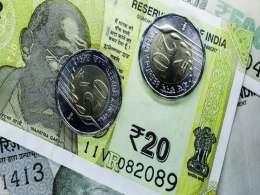It may not be the end of the road after all for investors having or looking at a position at equity (and commodity exchanges) in future. Former governor of Indian central bank Bimal Jalan under whose chairmanship a committee had indicated it was against following other nations (including the US where the NYSE Euronext itself is listed on both New York as well as Paris) in allowing exchanges to be listed. The recommendation is controversial as it could diminish investment opportunities for private equity investors in particular as it would take out one possible route to liquidity.
In a recent event in the Capital, Jalan clarified that the committee has not completely ruled out listing of stock exchanges but felt it was not the right time for it.
“We have a completely open mind on listing. There is no fundamental assumption that (stock exchanges) should not be listed. There is a good case for listing,” Jalan said, according to media reports. But he cautioned that the markets need to stabilise before one considers listing of exchanges.
Jalan said, markets possess great risk and volatility and since the nature of the activity of stock exchanges are directly related to the risk and credibility of country’s capital markets, a balanced approach is needed. He cautioned that while the business model of the market infrastructure institutions, particularly stock exchanges, is commercial in nature, these are public utilities and should be governed as such.
Jalan said capital market regulator Sebi will take a final view on listing. The Jalan committee report is expected to be taken up at the next board meeting of Sebi.
The committee that included corporate stalwarts like Kishor Chaukar (managing director of Tata Industries) and Uday Kotak (managing director of Kotak Mahindra Bank), had opposed listing as it felt a sharp decline in share price of firms operating exchanges could diminish the credibility of market infrastructure institutions.
It had also drawn flak for recommending allowing only financial institutions and banks with a net worth of at least Rs 1,000 crore as anchor investors, restraining compensation of exchange’s management besides other aspects of running an exchange.
Investors felt the report could harm India's investment climate. Bourses (including stock and commodity exchanges) and depositories have attracted private equity funding in excess of $1.2 billion since 2006, according to VCCEdge. Some of the investors in exchanges include PE majors like General Atlantic LLC, SAIF Partners, Goldman Sachs, Actis LLP, Citi Venture Capital International, Morgan Stanley Private Equity Asia, George Soros' Quantum Fund, among others. A ban on listing brings down exit opportunities for these investors in the future.
See our earlier report.





